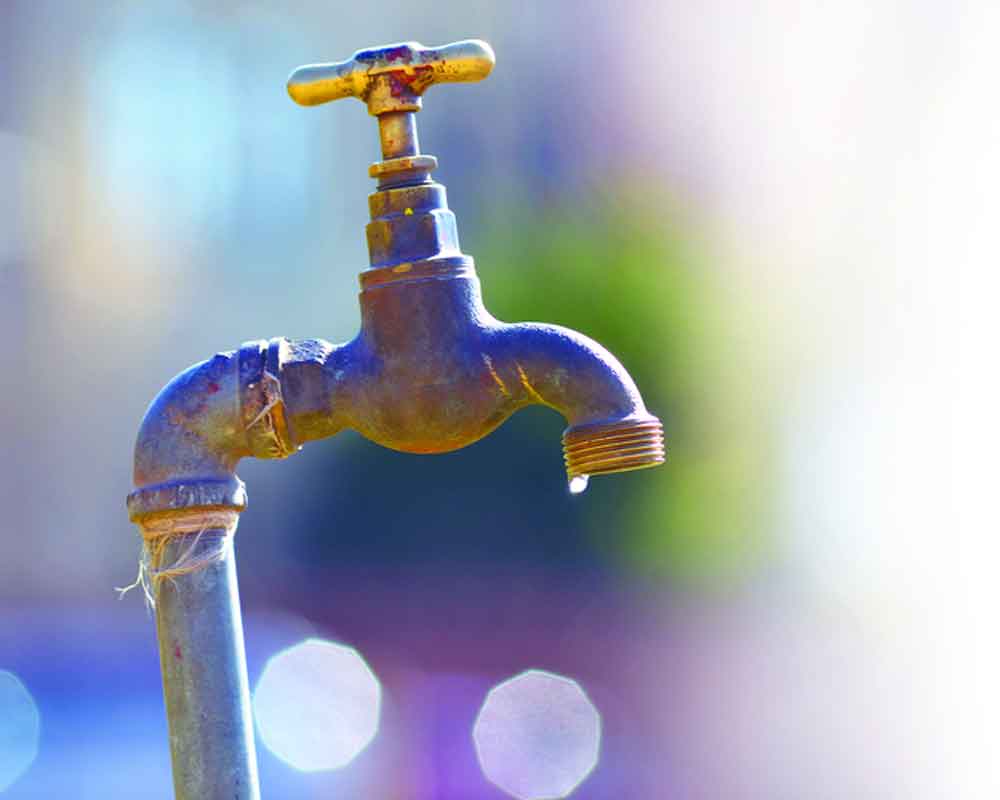Capital flunks all 19 potable tests; safest Mumbai doesn’t need ROs
Delhiites have neither fresh air to breathe nor safe water to drink. The drinking water supplied to residents in the national Capital has failed on all the 19 parameters — odour, iron, calcium, ammonia, chloride, anionic detergent and coliform among others. In contrast, Mumbaikars may not even need to buy water purifiers or reverse osmosis (RO) units. The drinking water in India’s commercial capital passed all the tests of quality standards set by the Bureau of Indian Standards (BIS). The other two metros, Chennai and Kolkata, too didn’t fare well, and are at the 13th and 14th place respectively.
Of the 21 capital cities where water quality was tested, Delhi was at the bottom with all samples failing to meet the BIS norms. Hyderabad and Bhubaneswar bagged the joint second spot in the rankings with Ranchi coming in at third.
Currently, it is mandatory for bottled water manufacturers to meet the BIS quality standard. However, the BIS norm for tap water is voluntary for the public agencies which supply piped water. Unlike Europe and other developed countries, India doesn’t have any certification for potable water.
The BIS lifted samples from the Capital cities across the country to test water quality on several parameters. Announcing the findings, Union Food and Consumer Affairs Minister Ram Vilas Paswan said, “All the samples lifted in Delhi have failed, but all samples of Mumbai are clear, and tap water of Mumbai is safest to drink.”
In Delhi, the samples were taken randomly from 11 places like Krishi Bhawan, Janpath (residence of Union Food Minister Ram Vilas Paswan), Pitampura, Ashok Nagar, Mukundpur, Burari, Karawal Nagar, Sonia Vihar, Seema Puri and Nand Nagari. In Krishi Bhawan, housing several Central Government offices, the sample failed to meet seven parameters of BIS norms, while water from Paswan’s residence failed on three parameters.
All the 11 samples failed to meet the 19 parameters like odour, colour, turbidity, PH, total dissolved substances (TDS), hardness, alkanity, aluminium, manganese, iron, calcium, nitrate, phenolic compounds, anionic detergent, ammonia, chloride, sulphide, coliform and e-coli that make up the BIS standard.
The tap water is supplied by the Delhi Jal Board (DJB). In most places, water pipes are running alongside and crossing sewage lines and drains in Delhi, which make the water supply susceptible to sewage contamination, officials said.
In Mumbai, all the 10 samples met the standards set by the BIS. The Brihanmumbai Municipal Corporation (BMC) supplies water to the residents in Mumbai. In Kolkata, nine samples failed 10 quality parameters while in Chennai, all 10 samples failed in nine parameters. The samples in Hyderabad and Bhubaneswar failed in one parameter each — phenolic compounds and chloramines respectively. In Ranchi, the potable water test failed on four parameters, while in Shimla on aluminum and Chandigarh on two parameters, “aluminium and coliform”.
According to officials, testing was conducted for organoleptic and physical tests, chemical test, toxic substances and bacteriological tests in the first stage. In the next phase, they will also undergo virological and biological tests for major disease carriers. The study, conducted by BIS for the Union Food and Consumer Affairs Ministry, tested 10 samples in 21 capital cities to see if they met the Indian Standard 10500:2012 (specification for drinking water).
Paswan said he has written to State Governments asking them to clarify what helps his Government can provide to make tap water drinkable.
The Centre also plans to include Capitals of the northeastern States and smart cities under the testing regime by January 15, 2020, while all district headquarters are expected to be tested by August 15, 2020.
Samples from Jaipur, Dehradun and Amravati too failed on seven parameters which include total alkalinity, coliform, calcium, turbidity, magnesium and aluminium. The sample in Ranchi failed on TDS, nickel, manganese and total hardness while Raipur on aluminum, total alkalinity and hardness.
The sample from Patna and Bhopal failed to four parameters like coliform, colour, total hardness and total alkalinity. The samples of Guwahati, Gandhi Nagar and Bengaluru failed on five parameters. The sample of Thiruvananthapuram failed on three parameters.
The Indian Standard prescribes 48 parameters including radioactive substance but in the current study, radioactive substance test was excluded. Also free residual chlorine has been excluded from this exercise since it is applicable only when water is chlorinated and a minimum limit has been prescribed for it.


























